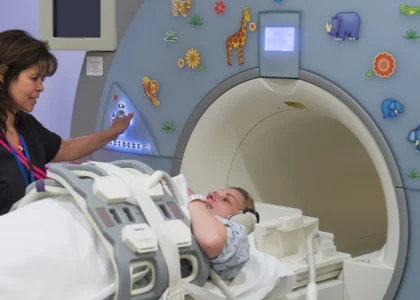The health of your unborn baby is your priority, and we at Precious Clinic for Advanced Fetal Medicine help you in achieving the best possible outcome for your baby at the end of your pregnancy journey.
One such important aspect of your precious pregnancy is blood tests to screen the baby in womb for possibility of Downs syndrome. Downs syndrome is the most common cause of mental retardation in babies and very few people are aware this Down syndrome can be easily identified in the mother’s womb with the help of some advanced blood tests.
As expectant parents, it’s natural to want the best for your child, and that includes ensuring their health and well-being from the very beginning. Prenatal screening is a crucial aspect of this process and offers valuable insights into the health of your unborn baby.
In this blog, we will provide you with a deeper understanding of Down syndrome screening, its importance and, its methods.
Understanding Down Syndrome: An Overview
Down syndrome, also known as trisomy 21, is a genetic disorder brought on by the presence of an extra copy of chromosome 21. The babies with Downs syndrome can have various degrees of physical and mental impairment like heart defects, Thyroid problems, bowel problems and mental retardation, to name a few.

The Importance of Prenatal Screening for Down Syndrome
Since the problem can be diagnosed during pregnancy itself, the prenatal screening for Down syndrome forms an important part of your pregnancy care. It enables early detection and well-informed decision-making, guaranteeing that suitable care and assistance are offered right from the beginning.
Instead of making a firm diagnosis, screening gauges the likelihood that a foetus may be affected by Down syndrome. Additional diagnostic tests can be performed to confirm the results of screening that suggests a high risk.
What Screening Tests Tell You
Screening tests don’t diagnose the condition but inform parents about the likelihood or chance of having a child with a specific genetic disorder. With this information, parents are better equipped to make decisions about their pregnancy, potential medical procedures, and the future care of their unborn child. In addition to offering peace of mind, screening also presents an opportunity for emotional preparation and resource gathering should the test reveal an elevated risk.
Screening for Down syndrome can be performed as early as 10 to 14 weeks of pregnancy with a first-trimester ultrasound and blood test. Screening can also be performed between 15 and 20 weeks by a blood test.

Methods of Prenatal Down Syndrome Screening
There are three main methods of Down syndrome screening: First trimester combined screening test, Second trimester Quadruple marker test and most recent and most advanced non-invasive prenatal testing (NIPT)
- First trimester combined Screening test: To calculate the risk of Down syndrome, combined screening takes into account several variables, including maternal age, maternal blood indicators (such as hCG and PAPP-A levels), and ultrasound findings like Nuchal translucency, Fetal Nasal bone status etc. This procedure is carried out in the first trimester between 11-14 weeks of pregnancy and can detect approx. 85-90% cases of Downs syndrome when Sonography is done as per the international guidelines.
- Second trimester Quadruple marker test – This is a simple blood test which takes into consideration the maternal age and four important serum markers in the mother’s blood. The test is usually done between 16-21 weeks of pregnancy, and this can detect approx. 80% cases of Downs syndrome.
- Non-Invasive Prenatal Testing (NIPT): This is the most advanced and best screening test for Downs syndrome. The mother’s blood is drawn and sent to the specialised genetic labs. this test examines the fetal DNA that is already present in the mother’s bloodstream. NIPT can be carried out as early as 10 weeks into a pregnancy and is incredibly accurate with a detection rate of approx. 99-99.5%.
Final Note!
Pregnancy is a rollercoaster journey for expectant parents. It requires you to make certain critical decisions that will impact the future of both you and your unborn child. Prenatal Down syndrome screening is essential for ensuring your growing family is healthy, both physically and mentally. Right tests, at right times and right decisions in consultation with fetal medicine specialist makes this journey blissful.
Get Your Prenatal Down Syndrome Screening in Pune
Consult Dr Tejas Tamhane, Consultant, Fetal Medicine, to help detect and manage chromosomal disorders like Down syndrome in your baby.



